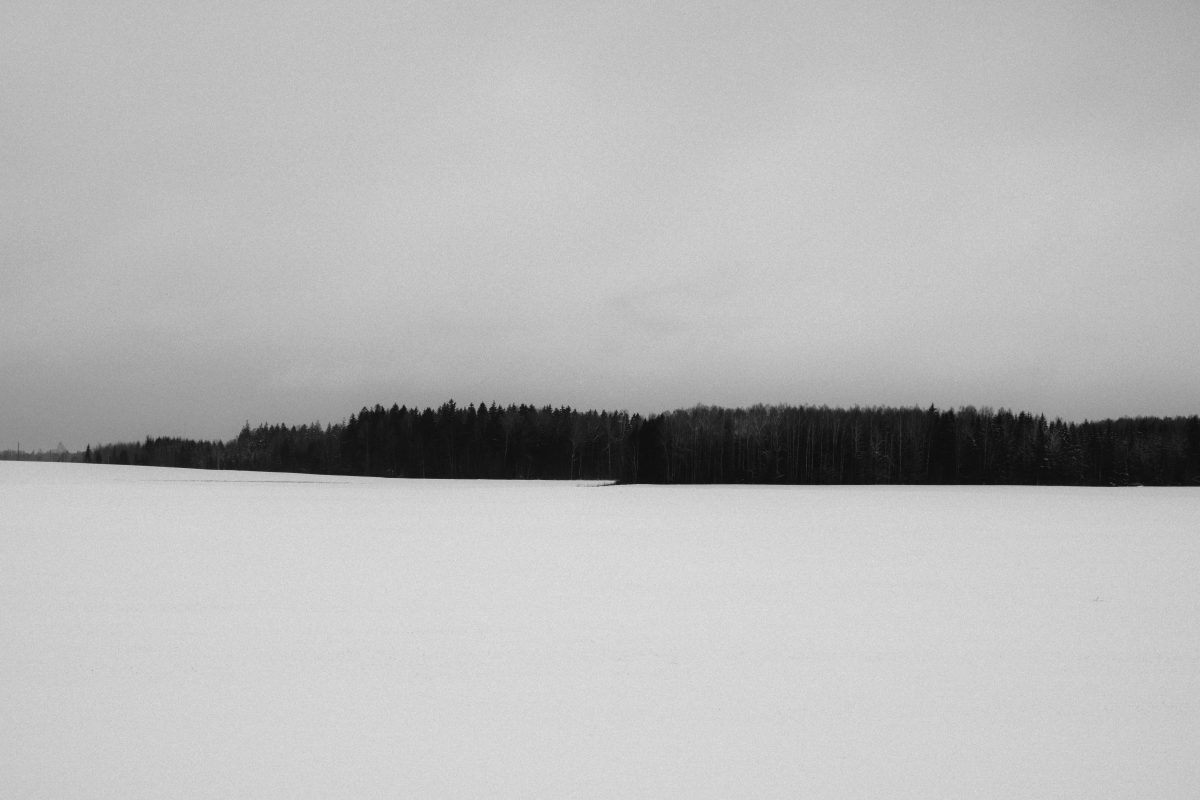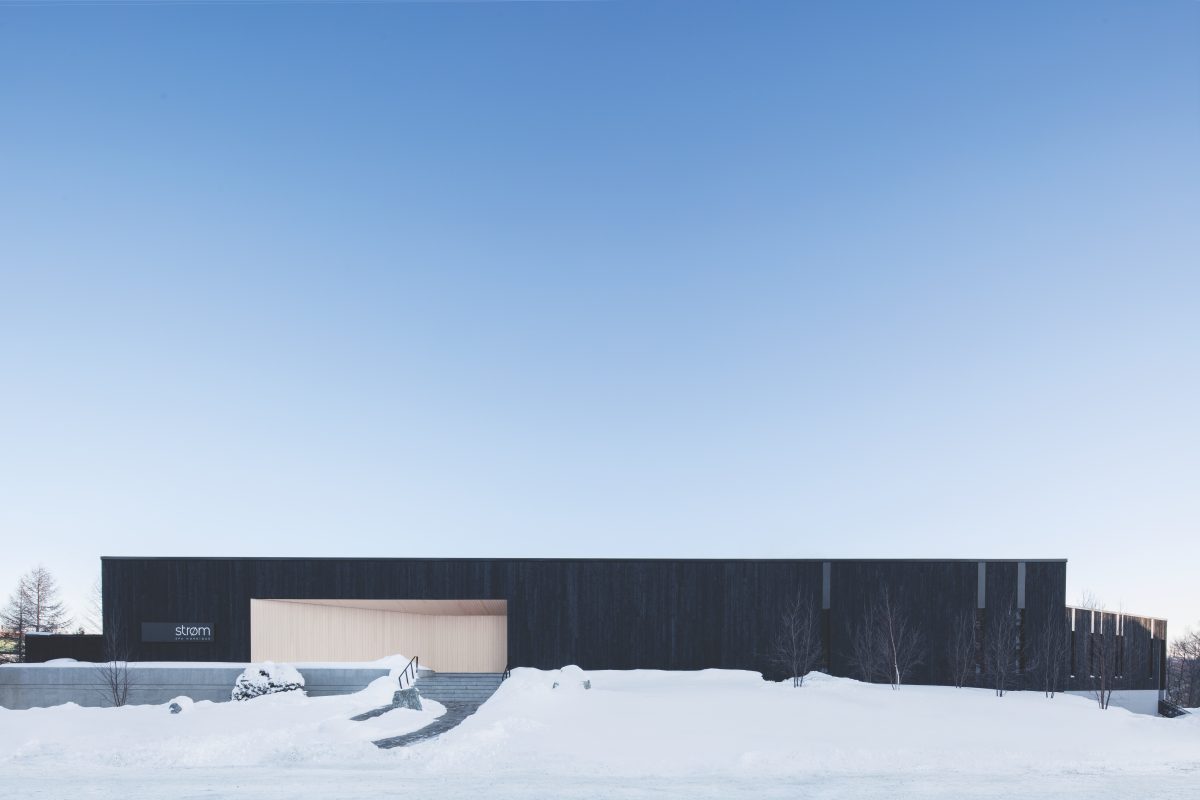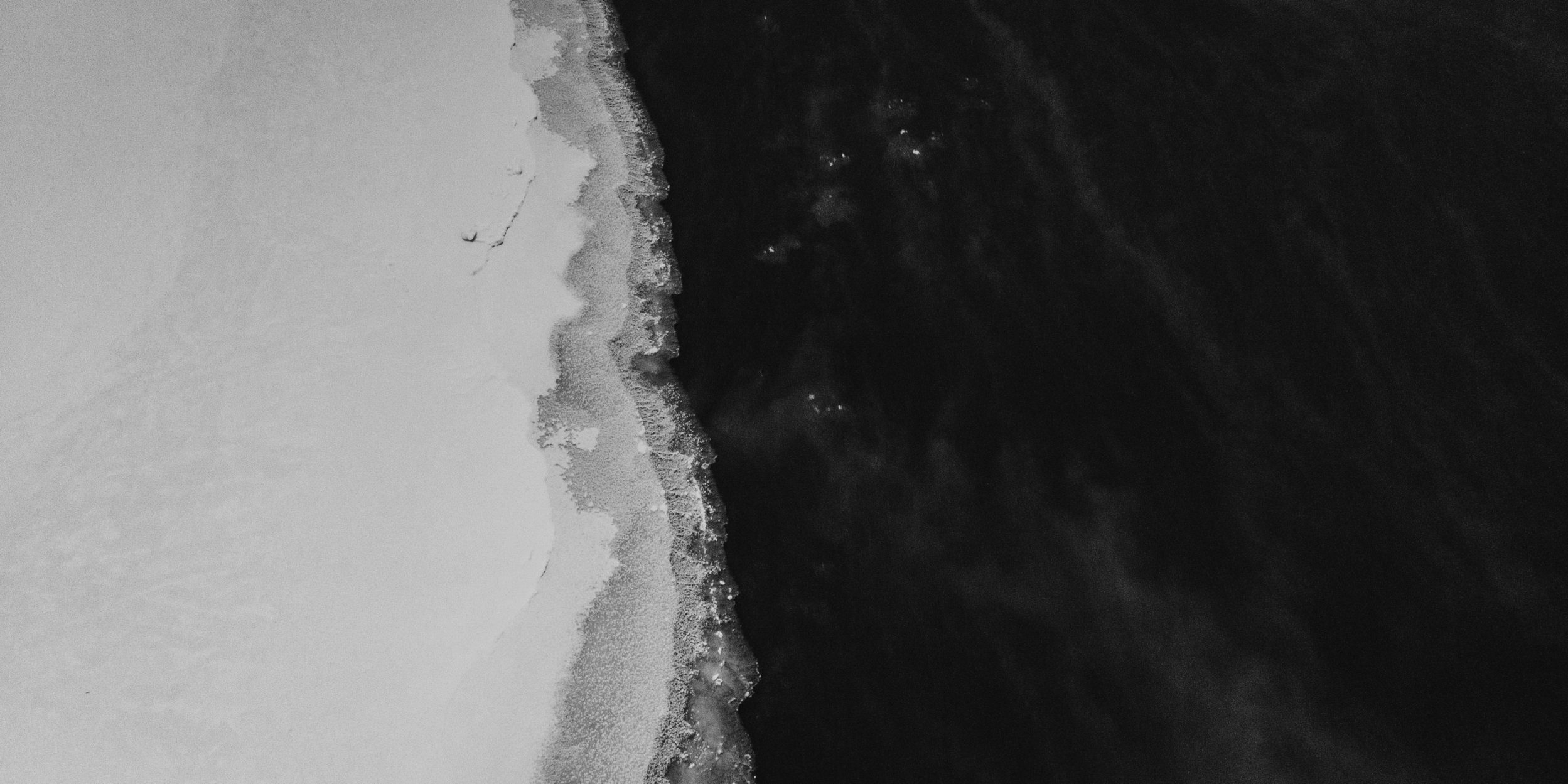Imagine winter. A big field in the countryside, covered with snow as far as the eye can see. A forest where every step is muffled by the reigning calm. The animals that hibernate or head south until the cold season is over. The city, asleep after a long storm. In all these images, a recurring theme: silence.
Since winter invites and calls for silence, it’s only natural that Daniel Chartier, a full professor at the Université du Québec à Montréal and the director of the Laboratoire international de recherche sur l’imaginaire du Nord, de l’hiver et de l’Arctique, was led to study it during his career. He notes, after years of being interested in the peoples of the North, that if silence is part of our landscapes and our seasons, it has also settled at the heart of our language.
Strøm nordic spa
Hello, Daniel. We think we know silence, but do we really know it?
Daniel Chartier
“From a technical perspective, silence—true silence— would only be found in closed radio studios. It would be unbearable to live in such a complete absence of sound. We need resonance to find ourselves. Total silence would therefore be an objective and an illusion, because it’s pretty anxiety-inducing.
“However, what we call silence is an absence of violent sounds: the noise of machinery, something falling on the ground, a loud or disturbing repetitive sound. Silence can also be an excess of microsounds, like a river flowing through a forest, which is similar to silence. Several similar examples can be found in nature, such as the sound of a waterfall or the wind. We put these sounds in the category of what is quiet, even soothing. On the other hand, anything related to human intervention is often associated with noise.”
Strøm nordic spa
So, is there a clear link between nature and silence?
Daniel Chartier
“Definitely! And we’re lucky, because we live in a wintry environment where nature is accessible. We have an extraordinary tool at our fingertips to achieve silence. The forest, among other settings, is known for being a place that is both closed and open at the same time—an ecosystemthatinvadesus, envelops us, andcreatessilence. “Several writers also talk about nature as something we penetrate, and which changes us forever. I really like the writer Marie Le Franc, a Breton who settled in Quebec in the 1930s. Upon arrival, she immediately headed to the Laurentians, fascinated by the forest. She had the impression that the lake only had one function: producing silence. As if we could produce absence or emptiness through natural elements.”
Strøm nordic spa
And what link do you make between culture and silence?
Daniel Chartier
“Silence is a cultural construct, and it’s also a language between people. The choice not to speak, the need to be in silence. Silence affects who we are and our relationship with others, but also our relationship with the environment.
“Silence is sometimes spoken of as a weapon of the people of the North. Unlike the people of the South, we’re able to be much quieter, and that can create a destabilizing unease that ‘protects’ us, in a way. Being capable of not talking, providing simple answers, not immediately responding, tolerating silence in the presence of others… all this is specific to Nordic peoples. “Silence is a richness of language, but it’s much subtler than speech. Culturally, we must be able to grasp its nuances, that the relationship we have with others lends itself to it, and that everyone values it.”

Strøm nordic spa
Why is silence part of the language of the people of the North?
Daniel Chartier
“There are several hypotheses. The passage of winter and the need for calm is one. Indeed, as we traditionally spend winter together in a house, we would go crazy if everyone had to speak all the time, at the same time. It would be a cacophony. You’ve surely felt it: after a weekend at a cottage with friends, we’re happy when Sunday arrives, and we can return to silence.
“The quality of silence established by winter can also become addictive, which means that we seek it out all year round, and that silence settles into our language. Snow is an insulator against cold, but also against sound. When you go outside after a snowstorm, even in the city, you get the feeling that it’s very quiet, but there are simply dozens of centimetres of insulation on the ground that absorb sound.
“Among the Scandinavians, there’s also an ethic of walking in the forest. You never talk or raise your voice. To them, the forest is as sacred as a church. You enter, and a solemnity sets in. Someone who talks while skiing won’t have understood anything. They can’t control themselves. That’s another aspect: self-control. This is a value that many peoples of the North consider important, and which involves the ability to speak with moderation, when it’s appropriate to do so.
“Among other peoples, such as the Finns, saying some- thing that others have already said in a conversation is considered poor form. This gives rise to somewhat limited, almost oppressive conversations. Here, we pick up other people’s ideas; there’s more freedom. We’re a Nordic-Latin people, so yes, we like silence, but we also like to talk!”
Strøm nordic spa
What are the benefits of silence on the body, and on well-being in general?
Daniel Chartier
“First, one thing is certain: repetitive noise is violent for the body. This has been proven. For example, if there’s a railway near you and you constantly hear trains going by, you’ll end up forgetting the sound, but the body will continue to feel it and react to it in a negative way. Ideally, therefore, we would live in a quieter world.
“Then, as human beings, we need moments of contem- plation and calm. These days, spas are one of the places we can go to meditate, and at one time, this was done at churches instead. In my opinion, there’s always a link between the body, silence, and peace of mind. These aren’t three independent concepts. Their codependency also appears after a ski day, for example. The solace that can be observed is related at once to the physical exertion, to the calm felt, to the cold and the heat, and to the body, which has thought of something else.”

Strøm nordic spa
In a daily life full of stimuli, have we lost sight of the importance of silence?
Daniel Chartier
“It’s true that our attention is very strained these days, sometimes even in silence. A phone can annoy us in ways other than its ringtone. The amount of information to which we have access and the perpetual sorting that we have to do to select and retain the most relevant information create fatigue in the body and mind. If we could expose ourselves to fewer stimuli, at least at certain times, that would do the greatest good.
“When there’s too much talking or too much information, we no longer distinguish what’s around us. We have the impression that very simple things are becoming serious, and that’s where we lose our judgement. Without emptiness, things take on a great deal of importance, whereas on the contrary, they no longer have any. Silence allows us to clear our minds.”




